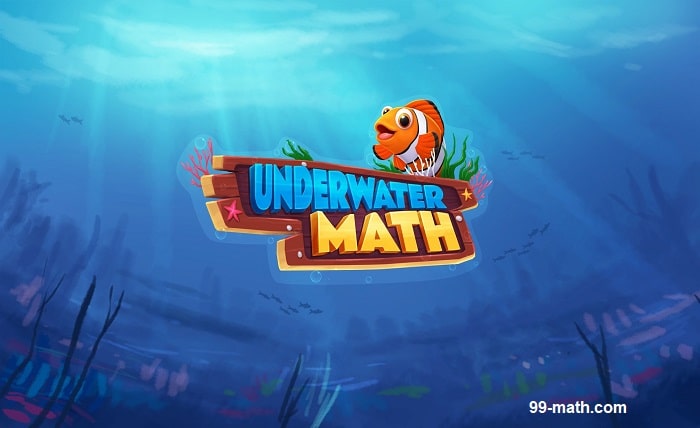Underwater Math: Making a Splash with Aquatic Calculations

Math isn’t just for textbooks! Dive into the fascinating world of underwater math, where calculations meet the wonders of the ocean. This blog post explores how math is used in oceanography, marine biology, and even recreational diving!
Beyond Textbooks: Unveiling the Practical Applications of Math in the Ocean
Math isn’t just about numbers and equations. In the realm of the ocean, it becomes a crucial tool for understanding and protecting our aquatic world. From studying marine life to ensuring safe dives, underwater math plays a vital role.
Charting the Course: Using Math for Navigation and Underwater Exploration
Imagine navigating vast ocean expanses. Underwater math helps divers and researchers calculate their position using tools like GPS coordinates and dead reckoning. Knowing currents, tides, and visibility are also crucial for safe exploration.
Understanding the Depths: Employing Math for Pressure Calculations
The ocean’s pressure changes dramatically with depth. Math allows divers to calculate decompression times, preventing decompression sickness (the bends). Understanding buoyancy and weight distribution is also essential for a safe diving experience.
Counting Creatures: Utilizing Math for Marine Biology Research
Marine biologists rely on math to estimate population sizes of fish and other marine life. This involves sampling techniques, statistical analysis, and modeling populations to ensure healthy ecosystems.
Keeping Oceans Healthy: Implementing Math for Pollution Monitoring
Pollution is a major threat to our oceans. Math helps scientists measure and track pollutants, analyze their impact on ecosystems, and develop models to predict future trends.
Building Underwater Marvels: Engineering Wonders and Math
From designing submarines to constructing offshore platforms, math is essential for ocean engineers. It plays a role in structural integrity calculations, ensuring the safety and functionality of these underwater structures.
Mapping the Ocean Floor: Utilizing Math for Oceanography
Underwater bathymetry, the study of the ocean floor’s topography, relies heavily on math. Sonar technology and complex calculations help map the ocean floor, revealing underwater mountain ranges, trenches, and other features.
Weathering the Waves: Predicting Currents and Tides with Math
Oceanographers use math to predict tides, currents, and wave patterns. This information is crucial for safe navigation, coastal management, and understanding weather patterns that influence the ocean.
Preserving the Future: Using Math for Marine Resource Management
Sustainable fishing practices require careful calculations. Math helps scientists assess fish populations, set quotas, and create models to ensure the long-term health of marine ecosystems.
Beyond the Surface: Exploring Math in Recreational Diving
Even recreational divers can benefit from a basic understanding of math. Calculating air consumption rates and no-decompression limits ensures a safe and enjoyable diving experience.
Conclusion
Underwater math isn’t just about numbers; it’s about unlocking the mysteries of the ocean and ensuring its future well-being. Whether navigating depths, studying marine life, or safeguarding our waters, math plays a critical role in our connection to the underwater world. So, the next time you think about the ocean, remember the vital role math plays in its exploration, conservation, and appreciation!
FAQs
- Do I need to be a math whiz to enjoy underwater activities? No, basic math skills can be helpful for recreational diving, but advanced calculations are usually handled by professionals.
- What kind of math is used in oceanography? Oceanography utilizes various forms of math, including calculus, statistics, physics-based calculations, and modeling techniques.
- How can I learn more about underwater math? Online resources, marine biology courses, or even recreational diving courses can introduce you to the fascinating world of math applied to the ocean.
- Why is math important for marine conservation? Math helps us understand the delicate balance of ocean ecosystems, allowing scientists to develop effective conservation strategies.
- Is there a future for underwater robotics and math? Absolutely! Advancements in robotics and underwater drones will rely heavily on complex math for navigation, data analysis, and autonomous operations within the ocean.
fideleturf offers the latest insights, tips, and strategies on horse racing predictions. Stay updated on races, odds, and expert advice to enhance your betting experience and improve your chances.




